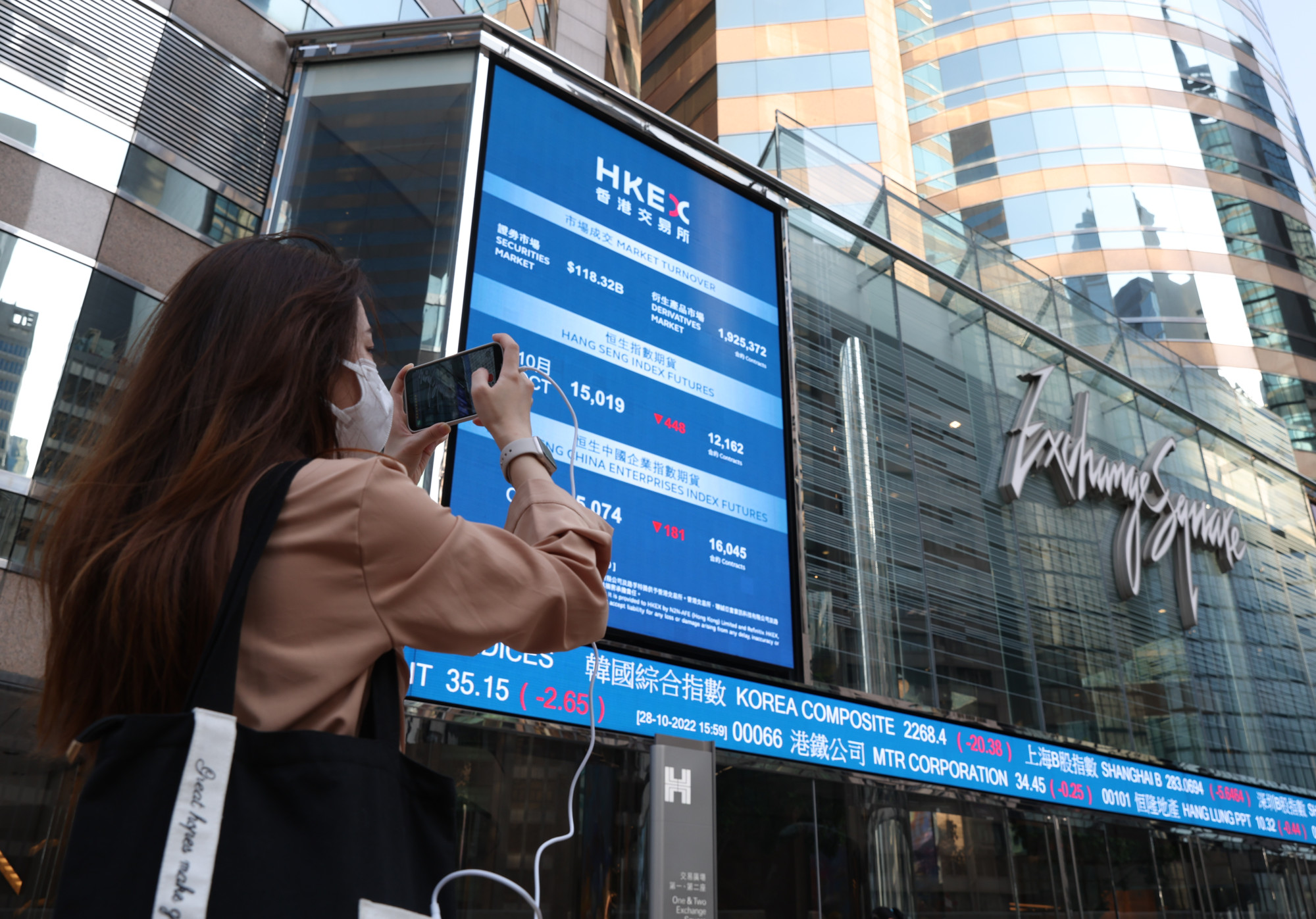
ESG: Hong Kong firms need technology’s help to meet tougher sustainability disclosure requirements, forum speakers say
- Fintech will help companies face the challenge of meeting more stringent international and local standards, legal expert says at Earth Forum
- Emerging technologies such as blockchain and artificial intelligence are also poised to help with the effort, says Friends of the Earth chairperson
Hong Kong needs to use technology to help companies step up their reporting to meet more demanding sustainability-disclosure requirements, according to speakers at an environmental, social and governance (ESG)-focused event on Friday.
Hong Kong’s authorities are refining ESG disclosure regimes to match developing international standards, and fintech will help companies face the challenge of meeting those requirements, said Karen Lam, structured finance and derivatives partner at law firm Linklaters, who was speaking during a panel discussion at the Earth Forum, an event organised by the government-backed Financial Services Development Council and environmental organisation Friends of the Earth (HK).
Under the proposals Hong Kong Exchanges and Clearing (HKEX) laid out in a consultation paper, listed firms will need to disclose any climate-related targets they have set, as well as whether any climate-change mitigation and adaptation efforts they undertake will change their business models and strategies.

The ISSB requires “ESG risk monitoring, developing strategies and transition plans to achieve firms’ ESG goals, and very detailed data on their carbon emissions generated by their own business as well as even their suppliers”, said Linklaters’ Lam.
“At the moment, some of this data is difficult to collect, and fintech is there to assist companies to deal with that challenge. We’re certainly seeing a lot of development in this area.”
All of the around 2,600 Hong Kong-listed companies are already required to publish annual sustainability reports on their ESG performance alongside mandatory periodic financial reports.
“Emerging technologies, such as blockchain, Internet of Things, AI and machine learning, can play a crucial role in … improving ESG reporting transparency and accountability,” Plato Yip, chairperson of the Friends of the Earth (HK), said at the forum.
China’s investors favour ESG investment principles while US views diverge
“For instance, blockchain can enable secure and tamper-proof data sharing, and AI can analyse vast amounts of data sets to identify sustainability risks and opportunities.
“By promoting transparency, disclosure and sustainability in its financial markets, Hong Kong can bolster its reputation as a responsible financial hub, attract more investments from ESG-conscious investors and can contribute to global climate efforts.”
Hong Kong needs to build ESG talent pool to shape globally acceptable standards
Hong Kong has over 350,000 SMEs, accounting for around 98 per cent of businesses in the city and employing about 45 per cent of the workforce in the private sector, according to the government’s Trade and Industry Department website.
Educating SMEs on the importance of reporting their carbon emissions will be crucial to helping tackle the difficulties of scope 3 emissions reporting and meeting the requirements of the looming ISSB standards, Loretta Fong Wan-huen, president of the Hong Kong Institute of Certified Public Accountants and ESG services leader in the Greater Bay Area and Hong Kong at PwC Hong Kong, said at a media lunch earlier this month.


